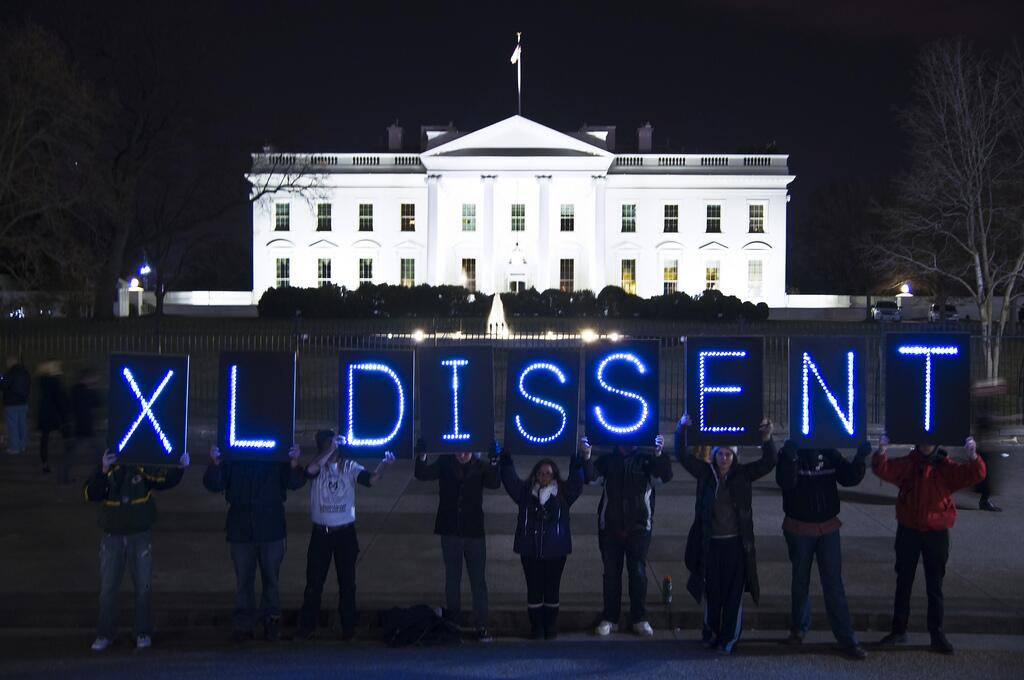http://www.commondreams.org/headline/2014/03/04-6
Published on Tuesday, March 4, 2014
– Jacob Chamberlain, staff writer
Overpass Light Brigade holds this #XLDissent message in front of White House Mar 2, 2014. (Photo via Twitter / @OLBLightBrigade)The development of the Keystone XL pipeline would have far greater ramifications for the climate than was highlighted in the State Department’s recently released final environmental impact analysis, says the The Carbon Tracker Initiative in a report released Monday.
The State Department’s Final Supplemental Environmental Impact Statement (FSEIS), which was released on January 31, says the pipeline “remains unlikely to significantly impact the rate of extraction in the oil sands, or the continued demand for heavy crude oil at refineries in the United States,” indicating that Canadian tar sands would be extracted at the same rate whether or not the pipeline was built, due to an increase of oil-by-rail transport.
However, according to Carbon Tracker’s calculations, which took a different look at the cost-benefit analysis of the Keystone XL pipeline for the companies involved, the presence of the pipeline will actually decrease transportation costs for oil producers and would thus enable the increase of tar sands extraction by as much as 525,000 barrels of oil per day. This increase, the group warns, will greatly accelerate the rate of carbon pollution pouring into the atmosphere, and will significantly worsen climate change.
“In my view, ‘significance’ is in the eye of the beholder,” the report’s co-author Mark Fulton, former climate change strategist for Deutsche Bank, told The Huffington Post.
By 2050, this increase in tar sands production would produce an additional 5.3 billion metric tons of carbon dioxide, the group holds—roughly the same that would be emitted if the U.S. built an additional 46 coal-fired power plants and as much as the country’s current overall annual carbon emissions.
“One key takeaway of this analysis is that the scenarios modeled in the FSEIS appear incompatible with a 2°C carbon constrained world,” the report states in reference to the goal agreed upon by international leaders at the 2009 climate summit in Copenhagen of limiting global warming to no more than 2 degrees Celsius.
As the report highlights, in a June 2013 speech at Georgetown University President Obama said he would approve the pipeline “only if this project doesn’t significantly exacerbate the problem of carbon pollution.”
If Obama only looks to the scientists who conducted the FSEIS, the pipeline is likely to pass Obama’s requirements.
On Sunday, hundreds of students were arrested in the largest single day of civil disobedience throughout the Keystone XL “saga,” protest organizers said.
Over 1,200 students conducted a mass sit-in in front of the White House, demanding the Obama administration reject Keystone.
______
